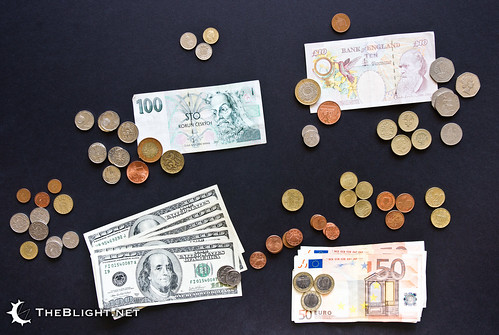The last thing anyone wants to worry about while sunbathing on a white sandy beach is their money being gobbled up by hefty transaction fees and currency exchange rates. So, how can you make your money travel further when exchanging foreign currency abroad?
Do your Homework
Credit Cards
Retain your credit card usage for larger purchases, such as travel, hotel bills and meals. Most credit card issuers charge currency conversion fees, however they are usually lower than cashing traveler’s cheques or converting your money at a bureau exchange service.
There are also cards that do not charge foreign transaction fees – which is a worthwhile consideration when taking a credit card abroad.
ATM’s
Traveling with a debit card is a convenient way to get cash. The fees your bank charges for using another bank’s ATM will usually be the same as if using another bank’s ATM at home. However, this is not always the case so it is best to check with your bank before you leave.
Be wise when making withdrawals. The fees charged to take out money from an ATM can add up quickly if you are making lots of transactions.
Buying Travel Money Online
If you do not mind carrying around a decent amount of cash, then buying travel money online is a good way to exchange foreign currency. Most banks, supermarkets and traditional foreign exchange services offer these services. Due to high competition in this area, the rates are usually lower and the best deals are reserved for online orders.

Photo courtesy of mr.nightshade
Check out this six-step guide, explaining how to get the best deal on exchanging your money online.
1. Compare, compare, compare
A good rule of thumb is to check out three providers and compare their service, as you would for any goods or services. Look at the rates they offer, as well as the total cost of your transaction. Be sure to take into account any delivery or handling fees you may have to pay.
2. Double check
Foreign currency websites usually ask that a minimum amount is exchanged, so if you are looking to change a small amount of money, then a web-based currency service may not be for you.
3. Consider handling and delivery fees
Usually, a £5 handling and delivery fee will be charged for each transaction. Taking into consideration the exchange rate will be lower than buying currency from a high street vendor, it is a small price to pay. Sometimes these sorts of services waiver handling and delivery fees over a certain amount, so check to see if you qualify for this.
4. Be Vigilant
It is important to note that the foreign exchange market is unregulated, so choose a provider with a healthy, untarnished reputation.
5. Know when your foreign currency is due for delivery
Most money exchange websites offer delivery within one or two working days after you place your order, and will need your signature. Make sure you are home – frantically trying to locate your money at the last minute will lead to unwanted stress before you leave.
6. Avoid using the wrong plastic
If you have ever withdrawn cash from a credit card you will know the whopping charges incurred for this privilege. The same rule applies when making foreign currency transactions online. Getting a cash advancement is expensive, so avoid this at all cost.
A bit of Homework = Happy Travels
Gone are the days of simply swapping your money for a wad of traveler’s cheques. There are many ways to get more bang for your buck, pesto or pound while traveling abroad.
Inform your bank you are going abroad to avoid any anti-fraud triggers. Travel with a backup plan – an extra debit card and some cash will come in handy – and do your homework. A little organisation goes a long way in ensuring your sunbathing is uninterrupted.
Amy Fry writes about various topics including personal finances, debt management and currencies. For more information about travel currencies visit http://www.currencies.co.uk/ or http://www.ft.com .
